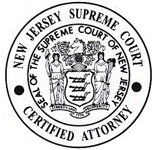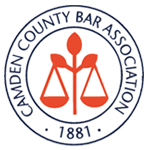Workers’ Compensation Frequently Asked Questions
I have been injured in an accident or by a condition related to my employment, what should I do first?
If you are injured while on the job, the first and most important thing you must do is to advise your employer of the injury as soon as possible. Even if you initially think that the injury is not serious, it is important that you let your employer know about the incident. By law, you are required to report the workplace incident to your employer within 90 days of the accident. The notice may be given to the foreman, supervisor, personnel office, or anyone in authority at the employer’s place of business. Notice does not have to be in writing.
If you are in need of medical treatment, a request should be made to the employer as soon as possible. Under the NJ workers’ compensation law, the employer and/or their insurance carrier can select the health care provider(s) to treat injured workers for work related injuries.
In the State of New Jersey, you are entitled to workers’ compensation benefits regardless of the size of the employer or the length of time that you have been employed. In fact, you are eligible even on your very first day of employment.
Once you have reported your injury to your employer, we strongly recommend contacting an attorney at Pietras Saracino Smith & Meeks, LLP to serve as an advocate for you and to help guide you through the process.
Am I entitled to medical coverage for my work related injury?
YES. N.J.S.A. 34:15-15 mandates that your employer provide medical coverage to cure and relieve the effects of your work-related injury. That coverage includes payment of medical bills for conservative care, surgery, therapy, pain management and any other treatment deemed necessary to relieve the effects of your injury.
Under the NJ workers’ compensation law, the employer and/or their insurance carrier can select the health care provider(s) to treat injured workers for work related injuries.
Unfortunately, many times your employer or their insurance carrier will refuse to provide you with the necessary treatment or to allow you to see a competent specialist to treat your condition. The attorneys at Pietras Saracino Smith & Meeks, LLP can help. If you are not receiving medical treatment at all, or have been denied a reasonable request for additional treatment, call us now.
I do not like the doctor to whom I was referred by my employer’s insurance company. What recourse is available to me?
N.J.S.A. 34:15-15 does give the employer the authority to select the health service professionals to provide care to an injured worker. However, if the employer refuses or neglects to provide services reasonable and necessary to cure and relieve the worker of the effect of the injury or restore function where possible, you may take action by filing a Motion for Medical and/or Temporary Disability Benefits. These proceedings are given a very high priority and are scheduled before a judge within 30 days of the proper filing of the motion. If you believe that your employer and/or their insurance carrier is not providing you with appropriate medical treatment, please call the attorneys at Pietras Saracino Smith & Meeks, LLP for assistance.
Am I entitled to wage loss benefits for the time I am missing from work?
YES. If you are out of work for more than 7 days related to a workers’ compensation injury, then you are entitled to receive wage loss benefits (temporary disability) for the time you miss from work up to a maximum of 400 weeks. Temporary disability benefits are calculated at 70% of your average weekly wage subject to a minimum and maximum amount. These benefits are paid tax-free.
These benefits are provided during the period when a worker is unable to work and is under active medical care. Benefits are usually terminated when the worker is released to return to work in some capacity and/or if he or she has reached maximum medical improvement (MMI). MMI is a term that is used when additional treatment will no longer improve the medical condition of the injured worker.
If you being kept out of work by a doctor related to your work injury and are not receiving wage loss benefits to support you and your family, call the attorneys at Pietras Saracino Smith & Meeks, LLP now.
Are workers’ compensation benefits taxable?
No. Workers’ compensation benefits are not taxable as per the NJ Gross Income Tax law NJSA 54A:6-6. For further information, please visit the IRS website at: http://www.irs.gov/publications/p17/ch05.html#en_US_publink100032551
Am I entitled to permanent disability benefits?
YES. If you suffer from an injury or work-related condition based upon demonstrable objective medical evidence, which restricts the function of the body and has a material impact on your ability to work or your life outside of work, then you are entitled to receive permanent disability benefits in New Jersey.
When a job related injury or illness results in a partial permanent disability, benefits are based upon a percentage of certain “scheduled” or “non-scheduled” losses. A “scheduled” loss is one involving arms, hands, fingers, legs, feet, toes, eyes, ears or teeth. A “non-scheduled” loss is one involving any area or system of the body not specifically identified in the schedule, such as the back, the heart, the lungs. These benefits are paid weekly and are due after the date temporary disability ends.
To obtain either partial permanent disability benefits or total permanent disability benefits in the most serious types of cases, you will need to hire an experienced workers’ compensation attorney to file a Claim Petition on your behalf with the New Jersey Division of Workers’ Compensation. Call one of the attorneys at Pietras Saracino Smith & Meeks, LLP today for a free consultation to review your rights to obtain permanent disability benefits.
What are the time limits for filing a claim with the Division of Workers’ Compensation in New Jersey?
There is two-year statute of limitations that applies to workers’ compensation cases. A formal Claim Petition must be filed within two years of the date of injury or the date of last payment of compensation, whichever is later. Medical treatment authorized by the employer is considered a payment of compensation. In cases of occupational illness, for example – asbestosis, lead poisoning or hearing loss, the Claim Petition must be filed within two years from the date the worker first became aware of the condition and its relationship to employment. Please note that the filing of an application for an informal hearing does not stop the two-year statute of limitations from running.
Do I have a claim for death benefits if my family member died as a result of a work accident or due to a condition related to his or her job?
YES. Dependents of a worker who dies because of a work related injury or illness may be eligible to receive death benefits. The weekly benefits payments are 70% of the weekly wage of the deceased worker, not to exceed the maximum benefit amount established annually by the Commissioner of Labor. The benefit amount is divided by the surviving dependents as determined by a judge after a hearing on extent of dependency.
A surviving spouse and natural children who were a part of decedent’s household at the time of death are conclusively presumed to be dependents.
A surviving spouse and natural children who were not a part of the decedent’s household at the time of death and all other alleged dependents (parents, grandparents, grandchildren, brothers, sisters, etc.) must prove actual dependency.
Children who are deemed to be dependents remain so until the age of 18 years or if a full-time student, until the age of 23 years.
If a child is physically or mentally disabled, he/she may be eligible for further benefits.
The employer or its insurance carrier is responsible to pay up to $3,500 in funeral expenses for a job-related death. These funds are payable to whomever is liable for the funeral bill, be it the estate or an individual.
Do I need to hire an attorney if I have been injured at work?
In New Jersey, you do not need to hire a workers’ compensation attorney to obtain medical and/or temporary disability benefits provided that your employer and/or their insurance carrier is willing to provide those benefits to you and is willing to provide you with the full extent of the benefits available. Unfortunately, many times an employee is not provided with the full extent of medical benefits and/or wage loss benefits available to them. That is why it is so important to have an experienced workers’ compensation trial attorney representing your interests.
If you are seeking a formal award of permanent disability benefits for the injury that you sustained at work or related to the nature of your employment, or if you are seeking a lump sum settlement of your workers’ compensation claim, you will need to hire an experienced workers’ compensation attorney to file a formal Claim Petition on your behalf with the New Jersey Division of Workers’ Compensation.
Will I have to pay attorneys’ fees if I file a formal workers’ compensation case?
You should never be asked to pay attorneys’ fees up front. In fact, attorneys’ fees in a New Jersey Workers’ Compensation case are actually set by the Judge of Compensation and are only paid after the attorney is successful in obtaining benefits for you. The counsel fee cannot exceed 20% of your recovery. In many cases, your employer or their insurance company is also responsible for paying a portion of your attorneys’ fees.
What if I did not have an accident but was injured because of the type of work I do? Do I still have a case?
YES. New Jersey recognizes both accident claims as well as claims for occupational diseases that arise out of and in the course of your job and that are due in a material degree to causes and conditions which are or were characteristic of or peculiar to a particular trade, occupation, process or place of employment. In other words, if you are suffering from an injury that is due to repetitive stress or exposure to conditions at work, then you have a valid claim. These types of injuries can include orthopedic injuries such as carpal tunnel syndrome, shoulder problems, back problems, knee problems or even respiratory problems, heart attacks, and psychiatric injuries. If you have been suffering from an injury due to type of work you perform, please call one of attorneys at Pietras Saracino Smith & Meeks, LLP for a free consultation.
What if my workers’ compensation claim was denied by the insurance company? Do I still have a case?
If you were injured in a work accident or sustained an injury due to the type of job you perform and your employer and/or their insurance company has advised you that the claim is denied, it is imperative that you seek the advice of an experienced workers’ compensation trial attorney. Simply because the claim was denied does not mean that you cannot recover benefits.
Sometimes your employer and/or their insurance carrier will have a valid basis for denying your claim under New Jersey law. Many times they will not. Moreover, if your claim has been denied and there are serious issues involved, an experienced workers’ compensation trial attorney may be able to negotiate a large lump sum cash settlement on your behalf. If you have questions or concerns regarding the denial of your workers’ compensation claim, please call one of the workers’ compensation trial attorneys at Pietras Saracino Smith & Meeks, LLP for a free consultation.
What if I received a prior award of compensation benefits and my condition has worsened? Can I receive additional benefits, including medical treatment, for my work injury?
YES. If you or a family member have been the beneficiary of a workers’ compensation claim that was previously settled, but now needs to be re-opened for additional medical treatment, additional wage loss benefits, or increased permanent disability, the attorneys at Pietras Saracino Smith & Meeks, LLP can assist assist injured workers and their families re-open a claim after it has been resolved previously even if you were represented by a different attorney at that time. Like many aspects of workers’ compensation law, reopening a claim can be complicated. An experienced worker’s compensation trial attorney can mean the difference between obtaining additional benefits and a denial. The experienced workers’ compensation trial attorneys at Pietras Saracino Smith & Meeks, LLP can help you.
While I was out of work as a result of a work-related injury my employer terminated me. Is such termination permissible?
The Workers’ Compensation statute, NJSA 34:15-39.1 only prohibits the termination of an employee in retaliation for filing a workers compensation claim or for testifying at a workers’ compensation hearing. If you feel you were terminated for these reasons, one alternative is the filing of a discrimination complaint against your employer with the Division of Workers’ Compensation. While the provisions of the law provide for restoration to your former position and payment of lost wages, you must be able to perform the essential duties of that position to avail yourself of any remedy under this portion of the statute. The applicable procedural rules may be found in the Rules of the Division of Workers’ Compensation, N.J.A.C. 12:235 – 9.1 et seq.
If your employer’s actions are not based upon your efforts to secure workers’ compensation benefits for yourself or others, but because of your disabling condition, you may have recourse to claim a violation of the Americans with Disabilities Act (ADA). We can assist in helping you find an attorney to represent you if that should occur.
To download a copy of the New Jersey Workers’ Compensation Act click here.






